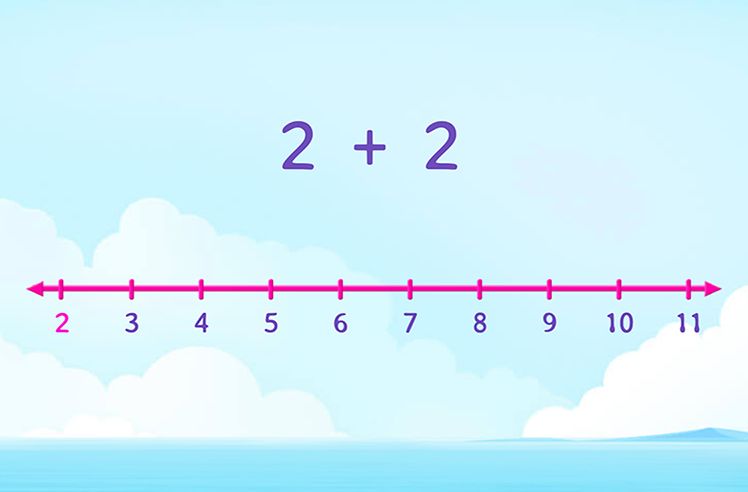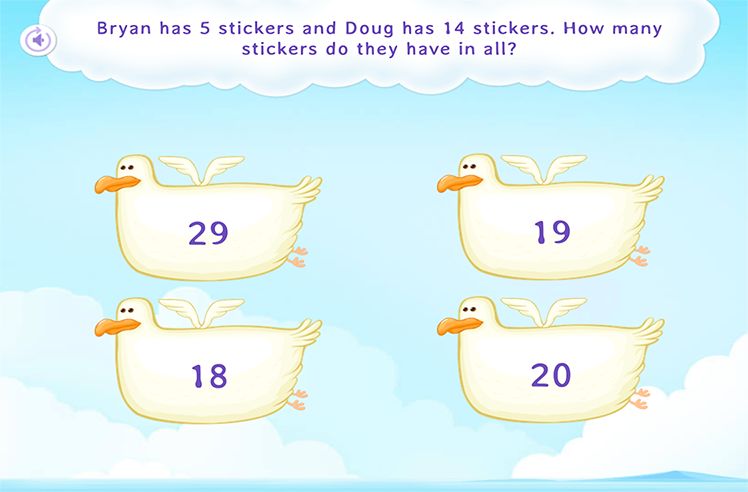Addition is an important concept of Mathematics. When we add two or more numbers, the result or the answer we get can be defined as the SUM. The numbers that are added are called addends.
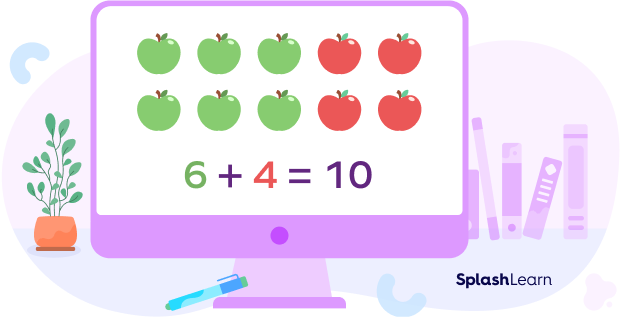
In the above example, 6 and 4 are addends, and 10 is their sum.
Another example is given below:
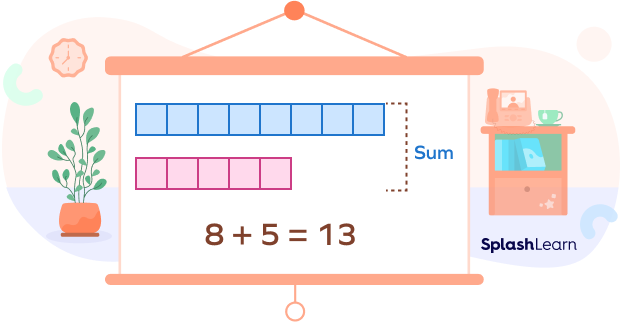
In other words, we can say the sum of 8 and 5 is 13 or 8 added to 5 is 13.
We can write an addition equation horizontally or vertically, as shown below.

What is Sum?
Sum is a way of putting all things together.
The sum brings two or more numbers together to make a new total. Alternate words used for sum are “all together, “put together,” “how many in all,” and “total,”.

Recommended Games
Sum of Two Numbers
The sum of two numbers is putting two numbers together. To calculate the sum of small numbers is an easy task. You can use your fingers to add two numbers. Let’s look at an example:
How many candies are there in the jar? There are 3 candies in the jar. You can count them by opening your three fingers.

Now, what if we put 3 more candies in the jar. How many candies are there now? There are six candies. You can count them by opening three more fingers.

Recommended Worksheets
Finding the Sum On Number Line
We can use a number line to find the sum of two or more numbers.
For example, we have to find the value of 2 + 4.
Step 1: Locate the first number (2) on the number line.
Step 2: Add 4 or move 4 units to the right.
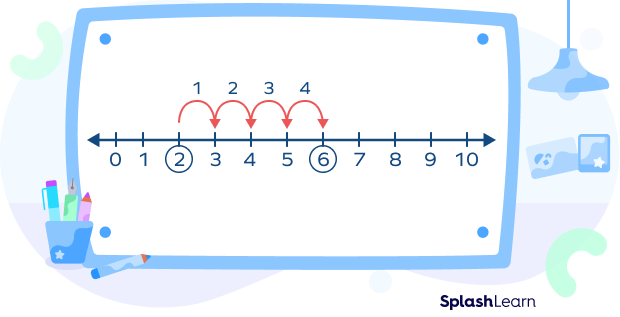
After doing so, we end up at 6, this is the sum. Therefore, 2 + 4 = 6
Fun Facts
- The sum of 0 and a number gives the number itself.
- When 1 is added to a number, the sum equals the successor of the number.
- The sum of opposite sides of dice is always 7.
Conclusion
We understood the meaning of sum. The sum is used to add two or more numbers and calculate the total number. You can find interesting math lessons on our platform. Learn the concepts of mathematics through enjoyable games and worksheets at SplashLearn.
Solved Examples on Sum
- What is the sum of the first five natural numbers?
Answer:
First five natural numbers are 1, 2, 3, 4, and 5.
Sum of first five natural numbers = 1 + 2 + 3 + 4 + 5 = 15
- Calculate 3 + 6 on the number line.
Answer:
Step 1: Locate the first number (3) on the number line.
Step 2: Add 6 or move 6 units to the right.

We end up at 9. Thus, 3 + 6 = 9
- Sandy and Wendy collected seashells on the beach. Sandy collected 8 seashells and Wendy collected 7 seashells. How many seashells did they collect in all?
Answer:
Number of seashells Sandy has = 8
Number of seashells Wendy has = 7
Total number of seashells collected by both of them = 8 + 7 = 15
- John had 9 books in his backpack. He then put 11 more books in it to take it to the school. How many books did he take to the school?
Answer:
Number of books in John’s backpack = 9
Number of more books he put = 11
Total number of books he took to the school = 9 + 11 = 20
Practice Problems on Sum
Sum
Choose the correct addition statement represented by the number line given below:

We are moving 4 units to the right after 1. Hence, the correct statement is 1 + 4.
Which of the following is incorrect?
6 + 7 = 13 which is not equal to 14. So, 6 + 7 = 14 is the incorrect equation.
Fill in the blank: ____ + 7 = 117
110 + 7 will give us 117. So, 110 is correct.
Frequently Asked Questions on Sum
What is the sum of opposite sides of a dice?
Dice is a cube with dots representing single-digit numbers from 1 to 6 on each face. The opposite faces of a die always have seven dots in all. Therefore, the sum of opposite sides of dice is always 7.
What is the digit sum of a number?
The sum of the digits of a number is the addition of each digit. We can obtain the sum of digits by adding the digits of a number. We can ignore the digit’s place values to find the digit sum. For example, the digit sum of 185 is 1 + 8 + 5 or 14.
What is the difference between the sum and product of two numbers?
The sum is the result of adding two or more numbers. The product of two or more numbers is the result of multiplying these numbers.
















